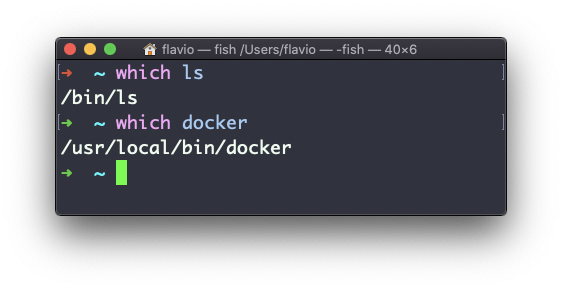Linux commands: which
A quick guide to the `which` command, used to show where the command is stored
AI workshop
join cohort #1
Suppose you have a command you can execute, because it’s in the shell path, but you want to know where it is located.
You can do so using which. The command will return the path to the command specified:

which will only work for executables stored on disk, not aliases or built-in shell functions.
The
whichcommand works on Linux, macOS, WSL, and anywhere you have a UNIX environment
→ Get my Linux Command Line Handbook
I wrote 20 books to help you become a better developer:
- Astro Handbook
- HTML Handbook
- Next.js Pages Router Handbook
- Alpine.js Handbook
- HTMX Handbook
- TypeScript Handbook
- React Handbook
- SQL Handbook
- Git Cheat Sheet
- Laravel Handbook
- Express Handbook
- Swift Handbook
- Go Handbook
- PHP Handbook
- Python Handbook
- Linux Commands Handbook
- C Handbook
- JavaScript Handbook
- CSS Handbook
- Node.js Handbook